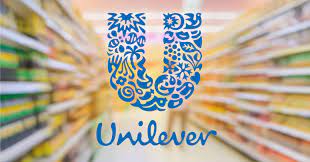
Consumer product giant Unilever will continue to try and have a merger with GlaxoSmithKline's consumer healthcare sector following the rejection of a 50 billion pound ($68.4 billion) offer by it earlier. Unilever believes that GlaxoSmithKline's business it wants to merge will be "great strategic fit."
GSK revealed over the weekend that it had rejected Dove's bid for the business segment, which includes Sensodyne toothpaste, Emergen-C vitamin supplement, and Panadol pain reliever.
In early trading, the company's stock rose 5 per cent to its highest level since May 2020.
GSK said on Saturday that Unilever's proposal "fundamentally undervalued" the company and that it would proceed with its intention to IPO it this year.
"Initial feedback on the deal from investors over the weekend has been almost uniformly negative," Jefferies analysts said in a note.
Its bid was however defended by Unilever.
"The acquisition would create scale and a growth platform for the combined portfolio in the U.S., China, and India, with further opportunities in other emerging markets," it said, pointing to synergies in the oral care and vitamin supplements business.
Bloomberg News reported on Sunday that the Marmite producer has held conversations with banks about additional finance for a potential sweetened bid, citing people familiar with the situation. Unilever has been silent about the matter.
GSK's consumer division, in which Pfizer owns a 32 percent share, generates about 10 billion pounds in yearly sales.
"It's a little surprising that they (GSK) haven't ripped Unilever's arm off at £50bn, as it's a decent price, with the only question being as to whether it's the right one," CMC Markets analyst Michael Hewson said in a note.
"It might be for GlaxoSmithKline and Pfizer, however, there is a feeling that for Unilever it could well prove to be too high a price," Hewson added.
Even though the merger deal of this magnitude, if it goes through, would be the largest in the world since the start of the Covid-19 pandemic, there has been pressure on Unilever CEO Alan Jope to stage a turnaround of the company's sagging stock price as the firm struggles to cope up with rising input costs.
The deal would be "very complex to execute in normal times, let alone in the middle of a global pandemic", said Barclays analysts.
Unilever, which plans to announce a business-strengthening initiative later this month, said on Monday that any acquisitions would be accompanied by the divestment of lower-margin businesses or brands and that any such deals would be accompanied by the divestment of lower-margin businesses or brands.
Following investor pressure to investigate a shake-up of the company and focus on its pharmaceuticals sector, GSK has been considering a separate listing of the consumer's arm.
(Source:www.thefinancialexpress.com)
GSK revealed over the weekend that it had rejected Dove's bid for the business segment, which includes Sensodyne toothpaste, Emergen-C vitamin supplement, and Panadol pain reliever.
In early trading, the company's stock rose 5 per cent to its highest level since May 2020.
GSK said on Saturday that Unilever's proposal "fundamentally undervalued" the company and that it would proceed with its intention to IPO it this year.
"Initial feedback on the deal from investors over the weekend has been almost uniformly negative," Jefferies analysts said in a note.
Its bid was however defended by Unilever.
"The acquisition would create scale and a growth platform for the combined portfolio in the U.S., China, and India, with further opportunities in other emerging markets," it said, pointing to synergies in the oral care and vitamin supplements business.
Bloomberg News reported on Sunday that the Marmite producer has held conversations with banks about additional finance for a potential sweetened bid, citing people familiar with the situation. Unilever has been silent about the matter.
GSK's consumer division, in which Pfizer owns a 32 percent share, generates about 10 billion pounds in yearly sales.
"It's a little surprising that they (GSK) haven't ripped Unilever's arm off at £50bn, as it's a decent price, with the only question being as to whether it's the right one," CMC Markets analyst Michael Hewson said in a note.
"It might be for GlaxoSmithKline and Pfizer, however, there is a feeling that for Unilever it could well prove to be too high a price," Hewson added.
Even though the merger deal of this magnitude, if it goes through, would be the largest in the world since the start of the Covid-19 pandemic, there has been pressure on Unilever CEO Alan Jope to stage a turnaround of the company's sagging stock price as the firm struggles to cope up with rising input costs.
The deal would be "very complex to execute in normal times, let alone in the middle of a global pandemic", said Barclays analysts.
Unilever, which plans to announce a business-strengthening initiative later this month, said on Monday that any acquisitions would be accompanied by the divestment of lower-margin businesses or brands and that any such deals would be accompanied by the divestment of lower-margin businesses or brands.
Following investor pressure to investigate a shake-up of the company and focus on its pharmaceuticals sector, GSK has been considering a separate listing of the consumer's arm.
(Source:www.thefinancialexpress.com)














